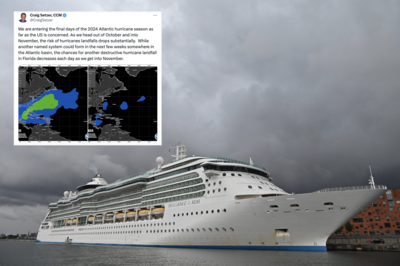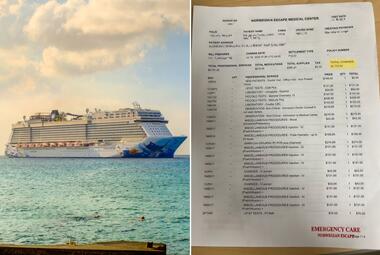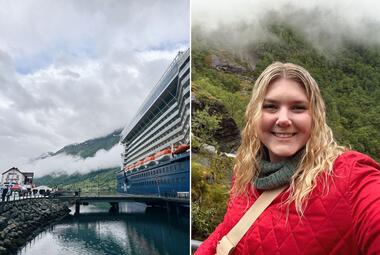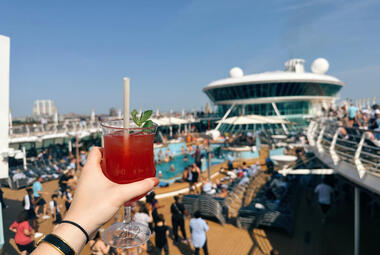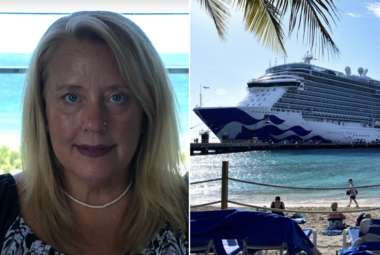The 2024 Atlantic hurricane season isn't over yet, but one Meteorologist shares why cruisers can finally take a sigh of relief. Historically, by late October, the season's peak begins to taper off, leading to fewer storms.
From Hurricane Beryl to Oscar, the storms have wreaked havoc on the cruise industry, with dozens of ships having to alter their itineraries. In some cases, sailings have been canceled because of port closures and delayed returns.
During Hurricane Helene, for example, MSC Seashore, Royal Caribbean's Serenade of the Seas, and Carnival Elation and Paradise were stuck at sea, unable to return to their homeports.
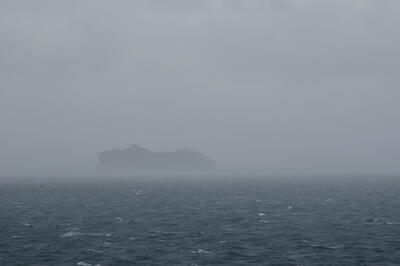
Though not out of the clear, Meteorologist Craig Setzer took to X (formerly Twitter) to explain why the threat of another major hurricane slamming into Florida, where many cruise ships depart from, is dwindling.
"As we head out of October and into November, the risk of [hurricane] landfalls drops substantially. While another named system could form in the next few weeks somewhere in the Atlantic basin, the chances for another destructive hurricane landfall in Florida decreases each day as we get into November," he writes.
Though models continue to suggest a chance of tropical development in the Caribbean over the next 9 days, the threat of another hurricane impacting Florida remains low. Water temperatures, which are gradually decreasing, are barely warm enough to sustain a hurricane in the Gulf. Plus, wind shear remains mostly high over the state.
Read more: Best hurricane lessons after Hurricane Milton, according to cruise experts
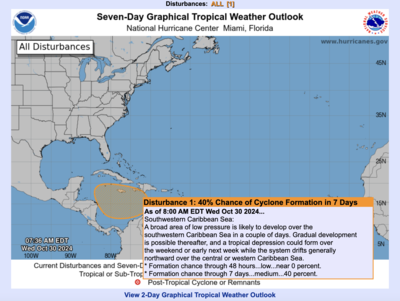
"If something were to form and move north from the Caribbean, it would likely be deflected east and be inhibited from strengthening, thanks to the shear," he adds.
According to WKMG Click Orlando, Florida has only been hit by three hurricanes in November dating back to 1851, with the latest being Hurricane Nicole in 2022. Nicole made landfall as a Category 1 storm near Vero Beach, causing extensive damage along Florida's east coast.
However, before Nicole, the last hurricane to make landfall in Florida in November was Hurricane Kate in 1985. Before that, there was a hurricane in 1935 which made landfall in Miami.
Read more: Here's What Happens If There's A Hurricane During Your Cruise
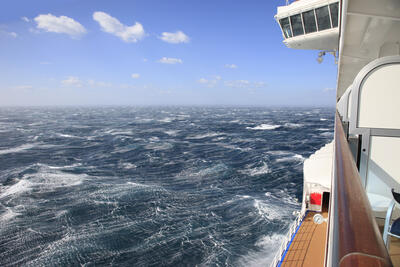
What does this mean? With Florida's major cruise ports, including Port Everglades, Port Canaveral, PortMiami, and Port Tampa Bay, open and operational, cruise lines are less likely to cancel sailings because of a tropical system. Instead, if the Eastern Caribbean is forecasted to be impacted, you will likely head to the Bahamas or Western Caribbean.
Cruise ships can be impacted by weather throughout the year, too

Last December, an MSC ship scheduled to sail from New York to The Bahamas was forced to head to New England because of "...rapidly worsening weather that would have made it impossible to safely reach the southern Atlantic Ocean from New York City," MSC Cruises said in a statement to ABC News.
Moreover, in February, passengers enjoying their day ashore at Royal Caribbean's private island in The Bahamas were asked via the public address system to return to their ships—Oasis of the Seas and Freedom of the Seas—hours ahead of the initial all-aboard time. As reported by Royal Caribbean Blog, a rapidly moving storm was approaching the island, and soon after guests were back onboard, waves began to crash over the pier.
Oasis shielded Freedom from the wind, allowing the 156,271 gross registered ton ship to safely sail away. Conversely, Oasis of the Seas remained at CocoCay past midnight. Following that, Allure of the Seas canceled a visit to Nassau, opting for an extra day at sea.
Read more: I visited 16 Caribbean islands on a cruise ship — these are the 3 I'd return to and the 2 I'd skip
Record-breaking hurricane season
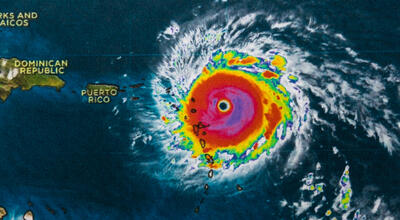
Tropical Storm Alberto formed on June 19, 2024, making it the latest first named storm since 2014. Less than one month later, the second named storm of the season, Hurricane Beryl, became the earliest Category 5 Atlantic hurricane on record, as well as the second recorded in July.
Earlier this month, Hurricane Milton formed and rapidly exploded into the second Category 5 hurricane of the season, becoming the most intense Atlantic hurricane since Wilma in 2005 by barometric pressure and the most intense since Dorian by wind speed.
As of October 28, the storms during the Atlantic hurricane season have caused over 370 deaths and more than $190 billion in damage. Most of the fatalities occurred during Beryl and Helene, whereas most of the damage was a result of Helene and Milton.
Read more: How cruise lines are preparing for an active hurricane season this year


